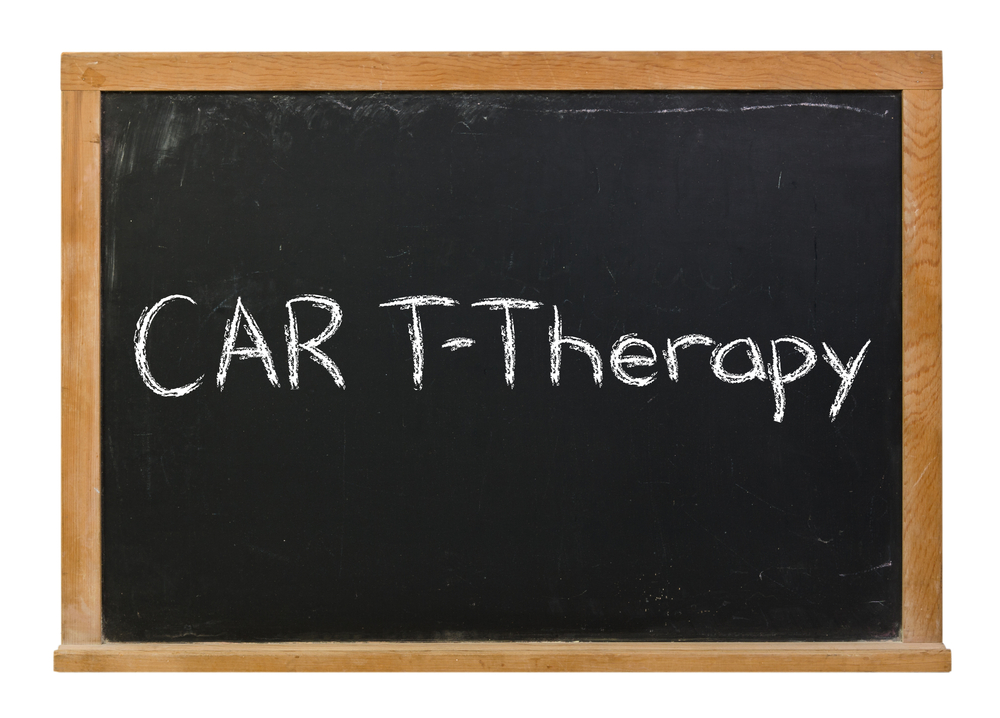Poseida’s Potential CAR T-cell Therapy Shows Positive Early Results in Phase 1 Multiple Myeloma Trial

Poseida Therapeutics’ CAR T-cell therapy candidate P-BCMA-101 is showing superior safety over alternatives and significant effectiveness in patients with relapsed or refractory multiple myeloma, according to early results of a Phase 1 trial.
The company’s ongoing open-label Phase 1 trial (NCT03288493) is designed to analyze the safety of the treatment candidate in multiple myeloma patients. Data was available from 11 patients, with a median age of 60 years, eight of whom are considered high-risk, who were treated with a median of six prior therapies. Three doses had been used as of Aug. 10: 51 million cells in three patients, 152 million cells in seven patients, and 430 million cells in one patient.
Poseida is still enrolling participants — for a maximum of 40 — in the groups receiving the higher doses of P-BCMA-101. More information on contacts and study locations across the U.S. is available here.
According to the company, P-BCMA-101 is showing better safety results over prior CAR-T therapies, with only one minimal and short-lived case of suspected cytokine release syndrome (CRS), a form of systemic inflammatory response causing flu-like symptoms.
No cases of neurotoxicity or admission to an intensive care unit have occurred. Additionally, the patient with CRS did not require treatment with tociluzimab or steroids, which is typically necessary in CRS caused by other CAR-T therapies.
Results also showed that 7 of 10 patients achieved at least a partial response, as assessed by the International Myeloma Working Group (IMWG) criteria. The remaining patient also showed a robust response, but could only be analyzed by a positron emission tomography (PET) scan.
“The latest data results show that P-BCMA-101 induces deep responses in a heavily pretreated population with relapsed/refractory multiple myeloma,” Eric Ostertag, MD, PhD, Poseida’s CEO, said in a press release.
He added that some patients reached a very good partial response and even stringent complete response — the absence of cancer cells in the bone marrow — at early efficacy assessments.
P-BCMA-101 is designed to target BCMA, a cell surface protein produced at high levels by myeloma cells. To produce CAR T-cells, scientists collect a patient’s own T-cells and modify them in the lab to recognize cancer cells when injected back into the patient.
Instead of using a virus like other CAR T-cell therapies, Poseida uses a technology called piggyBac to genetically alter the cells, leading to a 100 percent pure product. As a result, P-BCMA-101 contains high levels of stem cell memory T-cells — immune cells with self-renewing ability capable of remaining in the body in the absence of a specific target — and enables “a more gradual and prolonged immune response against tumor cells” than other CAR-T therapies, according to Ostertag.
Of note, the patients exhibited a more gradual peak T-cell expansion than found with other CAR-T therapies.
“We are also encouraged that P-BCMA-101 is demonstrating significant efficacy even at doses that have been ineffective for other anti-BCMA CAR-T therapies and that our response rates continue to improve as the dose increases,” Ostergag said.
Frequent adverse events included low levels of neutrophils (neutropenia) and platelets (thrombocytopenia), which are characteristic of CAR-T and myeloma studies, the company said. No dose limiting toxicities were observed.
Poseida recently presented clinical data of P-BCMA-101 at the CAR-TCR Summit, held in Boston. The company also presented preclinical results of a CAR T-cell therapy called MUC1-C — for ovarian, lung, pancreatic, colorectal and breast cancers — a prostate cancer-specific therapy, and a CAR-T therapy called P-BCMA-ALLO1 that includes a safety switch.






